English as foreign language (EFL) teachers from 24 countries, including Ukraine, Fiji, Senegal, Honduras, and Thailand, traveled to Indianapolis for two weeks earlier this spring to experience first-hand how to use service-learning techniques to teach the English language in their own regions.
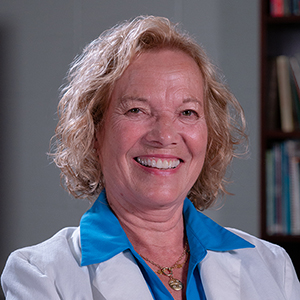
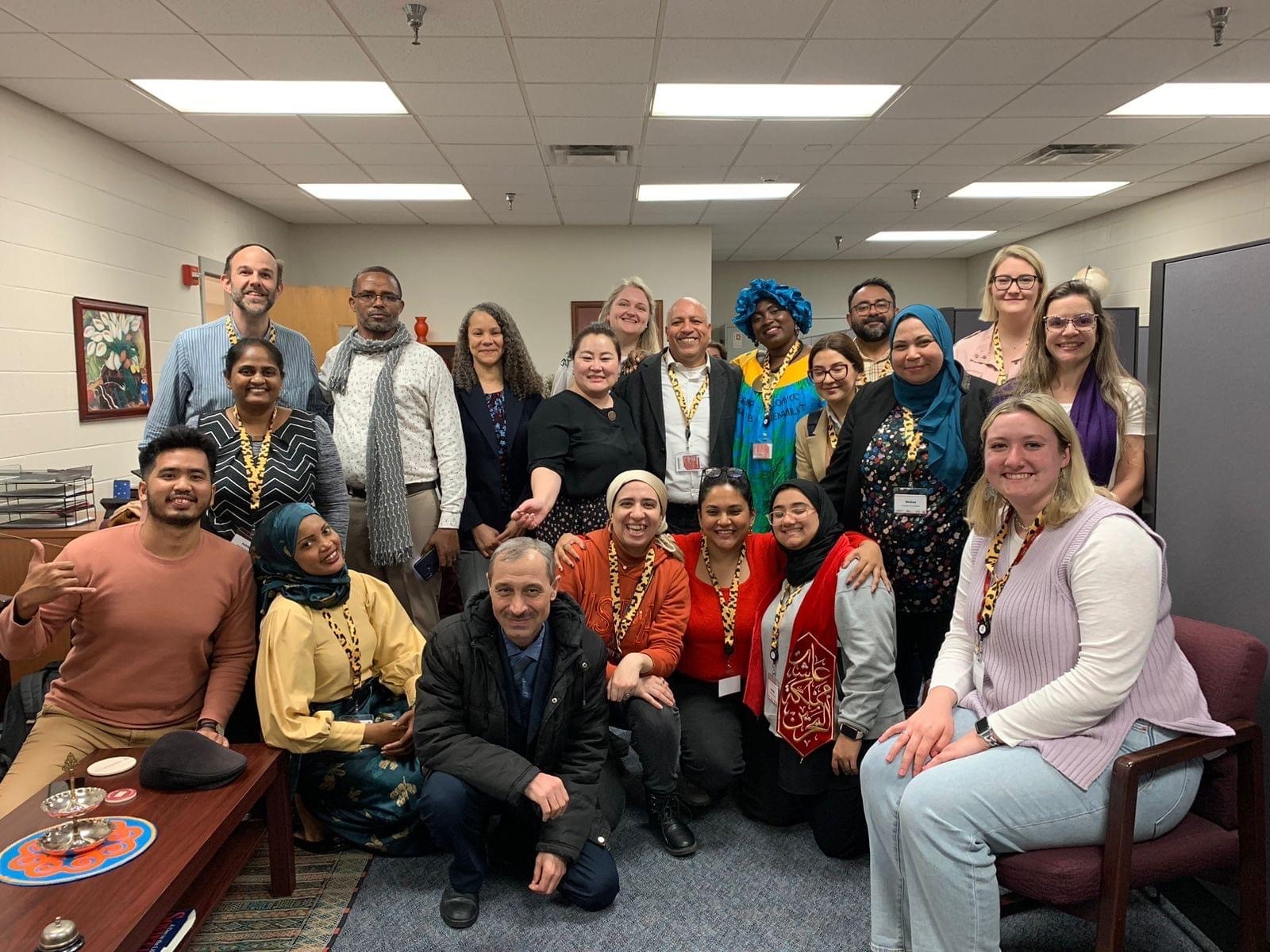
Hosted by the IU School of Liberal Arts International Center for Intercultural Communication (ICIC), the “Using Service-Learning to Teach 21st Century Skills to English Language Learners” exchange program was sponsored by the United States Department of State’s Bureau of Educational and Cultural Affairs Office of English Language Programs and was implemented in cooperation with FHI 360. The program was designed to share this community-focused style of education to break down international barriers, bring cultures together, and unify people through the power of the English language.
Joining ICIC was a collaborative academic team from IUPUI, including representatives from the IU School of Liberal Arts Program for Intensive English, Office of International Affairs, IU School of Education, and the Institute for Engaged Learning. Together, they taught participants how to merge 21st century skills growth (critical thinking, collaboration, communication, creativity), global awareness, and digital literacy, community-based service-learning to ultimately increase English language skills in classrooms around the world.
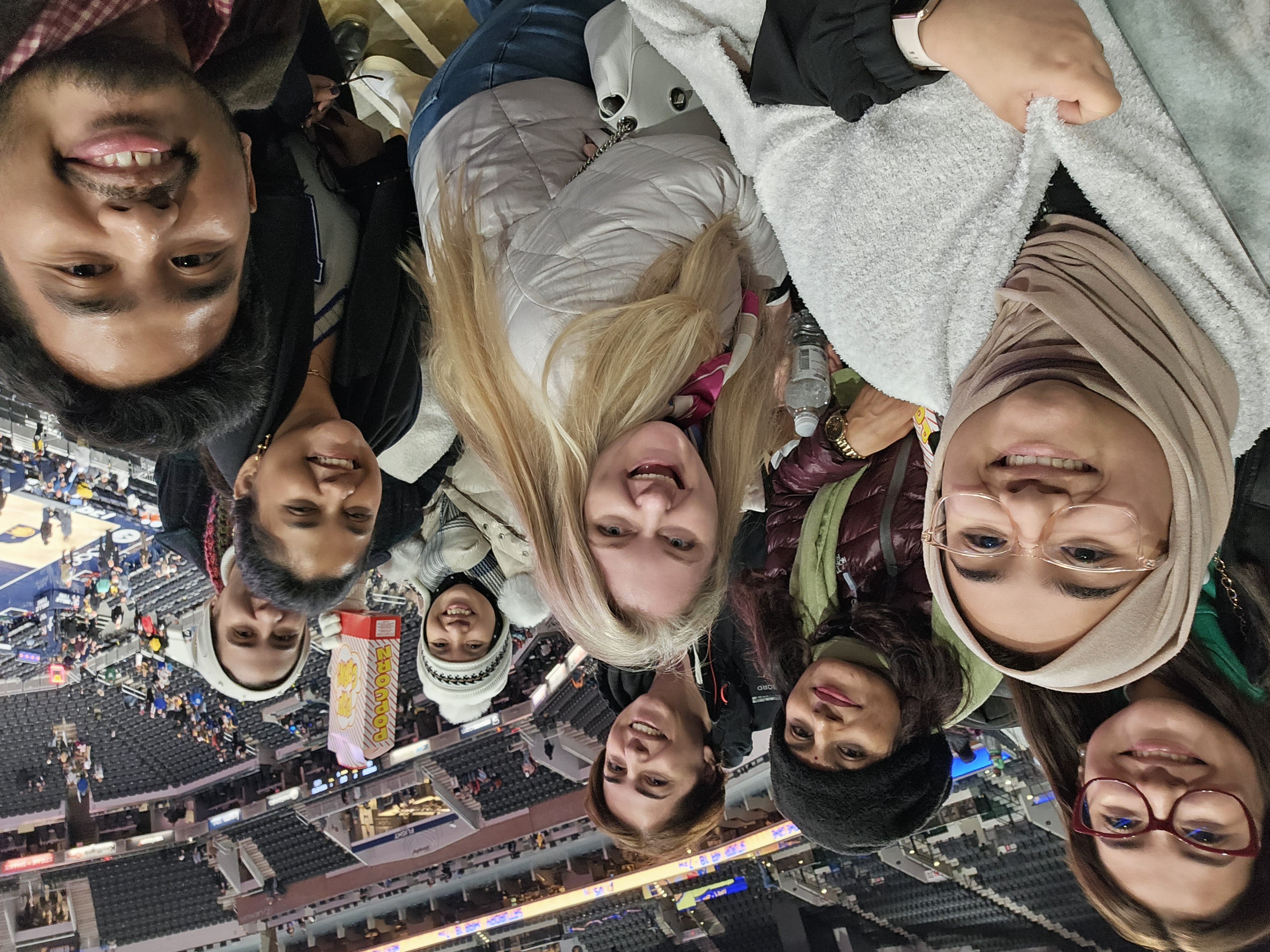
“The teachers chosen for this program were among the best in their regions, and it was such a pleasure to interact with them, to better understand each of their teaching situations and how service-learning can strengthen both English learning and their communities,” said Ulla Connor, Founding Director, ICIC and Chancellor’s Professor of English. “To be chosen to host this exchange program speaks to ICIC’s longstanding reputation for applying intercultural communication research to teaching practice with both local and global impact.”
Meet Kateryna Filatova
A freelance English teacher in the town of Dnipro, Ukraine, Kateryna (Kate) Filatova’s high school students were already learning foundational English skills through virtual e-learning so when she received her invitation to the exchange program, she was thrilled. “It was a big surprise! I had no clue what service-learning was, so I thought, wow!” said Kate Filatova. “This is something new, something as a teacher I don’t know about.”
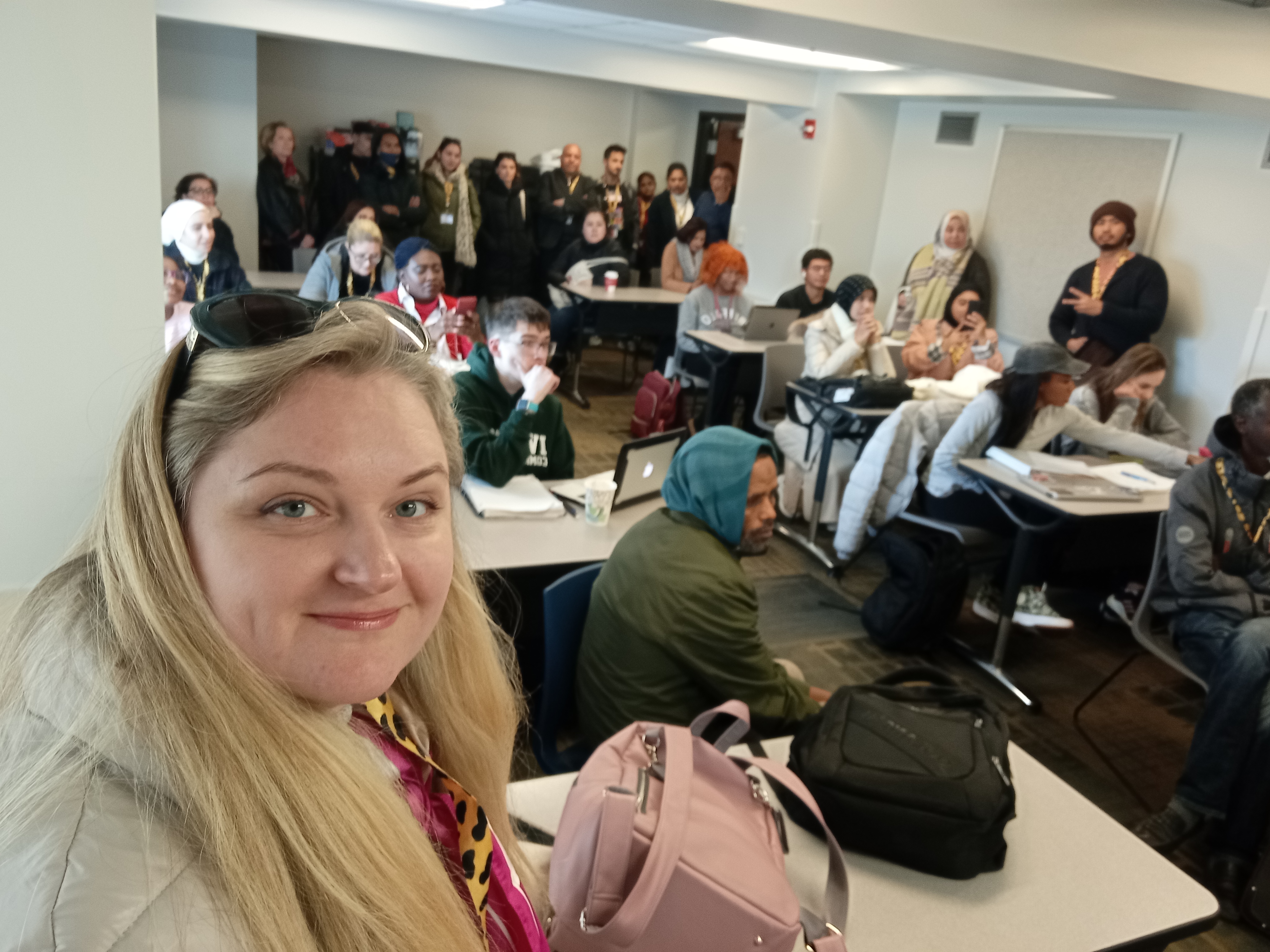
Filatova has taught language at the university level and received CELTA (Certificate in Teaching English to Speakers of Other Languages) certification, the most widely recognized English teaching qualification in the world. She currently teaches Ukrainian high schoolers as part of two U.S. Department of State-funded programs, the English Access Microscholarship Program (Access) and Learning English, Overcoming Stress.
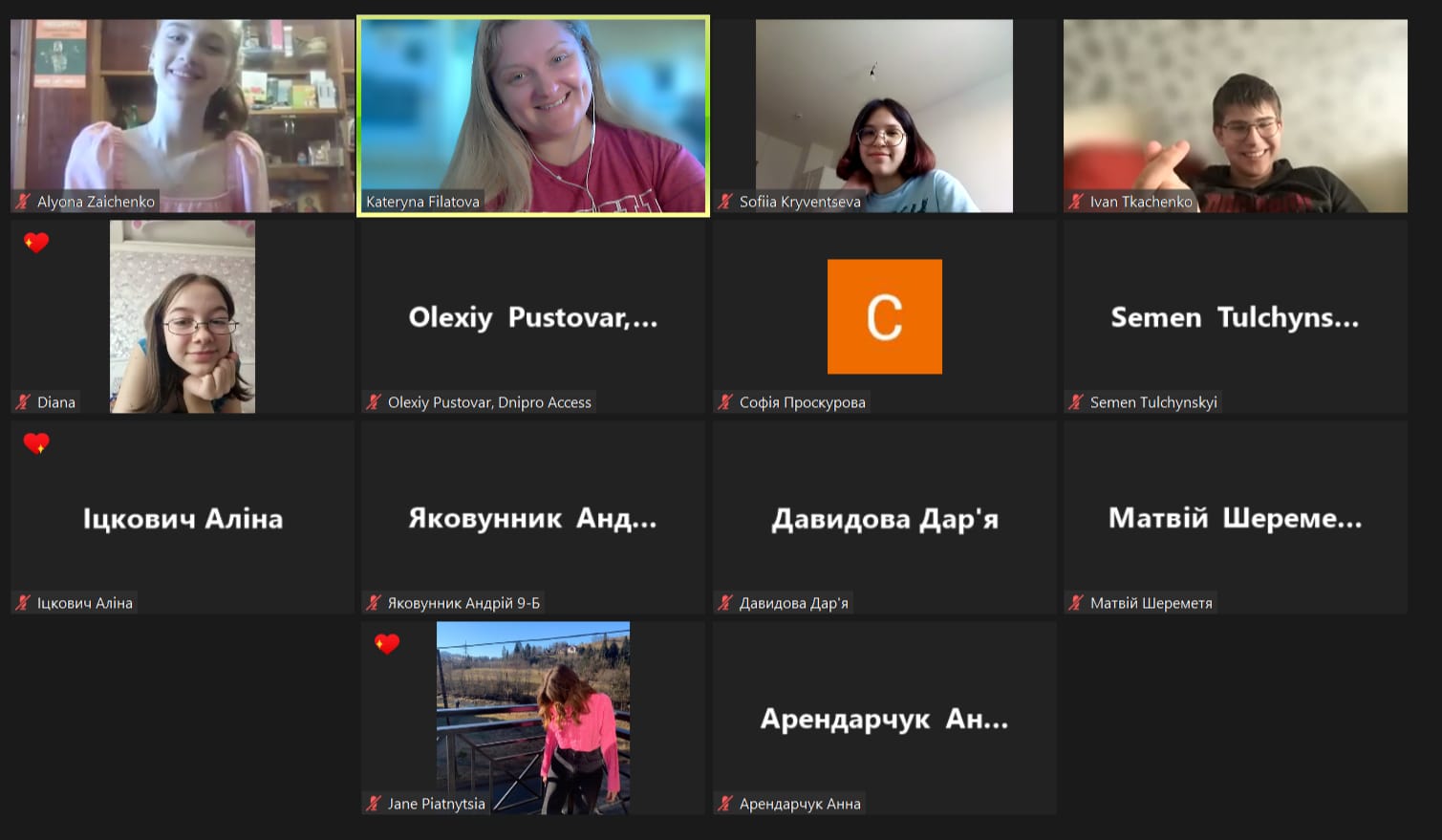
Dnipro is the largest city near the frontline of the war and has become the center for medical health, caring for soldiers.
The decision to leave her husband and young child for three weeks during an ongoing war did not come easily. “It was a really hard decision for me. The situation is not stable, and you never know what’s going to happen.
“The year was harsh,” recalled Filatova. “Then, I thought, yes, I need to take it because I could contribute to my community. I can contribute to other teachers to bring something new to them.”
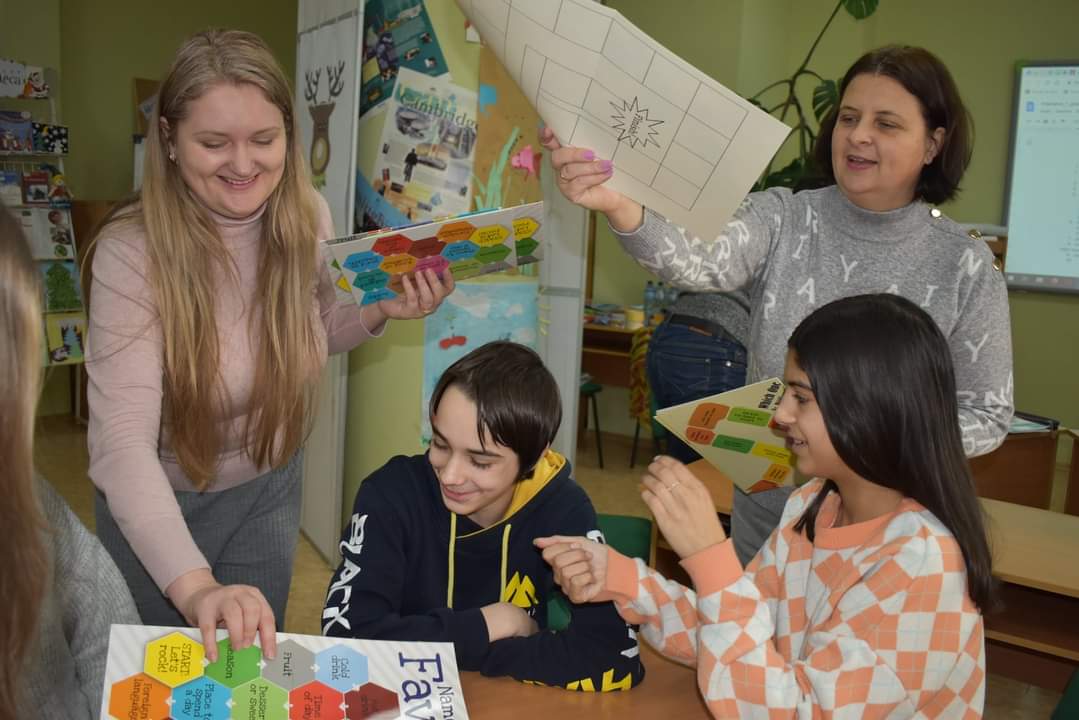
What is service-learning?
A service-learning approach teaching takes instruction outside the classroom walls and straight into the community. It is an effective way to engage students who are studying English because it provides meaningful context for language practice by ----making students active participants in finding solutions community needs. Students reflect on their values, develop new perspectives, and then use English to communicate their ideas, thoughts, and feelings about the experience and their own growth.
It was the opportunity of a lifetime for Filatova and her international peers―not only to come to the United States but also to learn a new approach to teaching the English language and to develop an international support network.
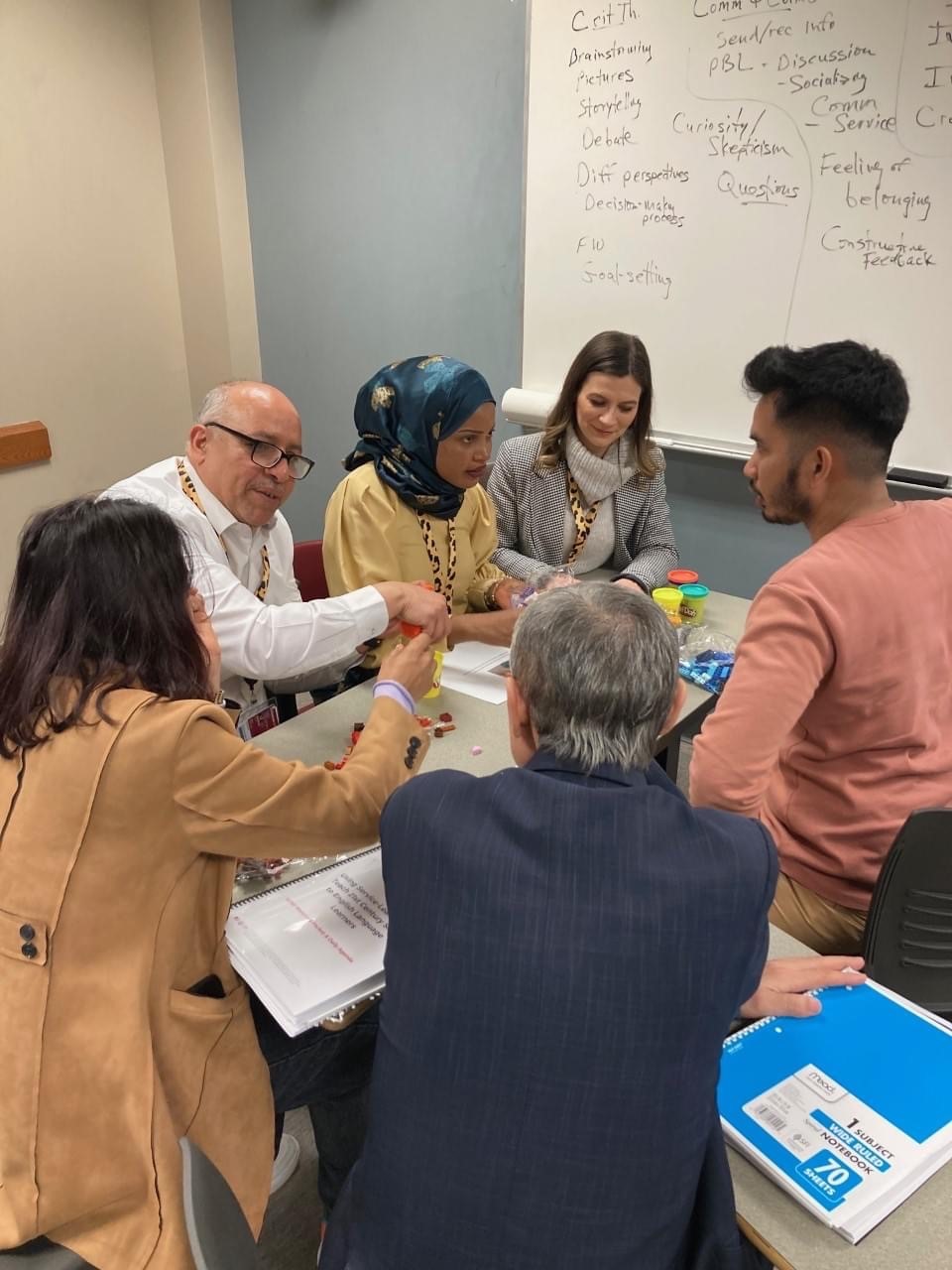
Speaking to the group, Dr. Hilary Kahn, IUPUI Associate Vice Chancellor for International Affairs, said, “Service-learning presents an extraordinary pedagogical framework that can enable our visiting educators to draw students’ attention to the United Nations’ Sustainable Development Goals (SDGs) to end poverty, protect the planet, and enjoy peace and prosperity for all, in ways that are meaningful in their own contexts.”
Experiencing service-learning first-hand
Keiko Kuriyama, Professor of Japanese in the Department of World Languages and Cultures, equipped participants with a comprehensive approach to launching a service-learning project, from syllabus to project development, to course activities. Dr. Robert Bringle, co-founder of the IUPUI Center for Service & Learning also shared current trends in service-learning, including an evolution from just “service” mentality to one of “community engagement and cooperation.”
Drs. Cristina Santamaría Graff and Jeremy Price, from the IU School of Education at IUPUI, led a training session as part of a community partnership that brings educators and families together at Indianapolis Public Schools (IPS) Brookside Elementary School. Participants received training in two specific frameworks for developing critical and transformative service-learning in their own communities. “Dr. Price and I are grateful to have had the opportunity to work with so many amazing colleagues doing transformative work all over the world,” says Dr. Santamaría Graff.
The group also visited an influential local partner, ProAct Indy, a community nonprofit that serves diverse youth. Founder and CEO Derrin Slack led an interactive session that introduced participants to the ways ProAct Indy crosses social, racial, and economic boundaries through meaningful service projects and social equity training.
Sharing the knowledge
Equipped with a new foundation of understanding for service-learning, Kate was filled with inspiration and motivation as she traveled home to Ukraine. Her friends and colleagues were eager to know all she learned about service-learning while in the United States.
One of her students is a university music instructor. Kate recounts, “I told her about my experience, and she told me how her students went to a blood donor center to play the bandura (a traditional Ukrainian instrument) while people gave blood, and she wanted to know if that was service-learning. I said that was service, but that if she had her students research music’s influence on donors, learn what their brain is doing while they’re listening to music, how it affects them, then that would be service-learning. She loved the idea! I think they’ll go to the hospital again, and I think I’ll join her as the English component.”
Remember. Live. Dream.
Kate is planning to implement service-learning, or more specifically, e-Service-Learning, into her curriculum as part of this year’s virtual Access Program summer camp. The Access Program provides foundational English skills to promising, economically disadvantaged high school-aged students in their home countries. Kate’s students continue to deal with their own difficult circumstances, seeking refuge away from their homes, some in other countries.“My project is called Remember. Live. Dream. I want my students to speak out. I want them to express their feelings, to tell their stories, because most of them are silent about what is happening in their souls, what is happening in their families, and students do not talk much about war.”
Kate’s planned approach is for her students to remember, then live in the moment, and dream, thinking about the future. How can they improve the situation? How can they project some of the future steps of their life?
“When you tell the story, when you share it, you can find support, you can find empathy and understanding. You can find someone who feels the same to share the experience together, so you are not alone in your fear, not alone in loneliness.”
“It’s people-learning”
Kate Filatova’s boundless optimism shined brightly throughout the program and during the closing ceremonies she was honored by her peers naming her “Most Hopeful for the Future.”Looking back on her experience, “I really appreciate what you have done for us, and Dr. Connor, it was an amazing experience,” said Kate. “I think it is somehow life-changing, not only for me but for other participants, as I see people are still communicating in the WhatsApp chat, sharing ideas. So, it’s not only service-learning, it’s people-learning.”


